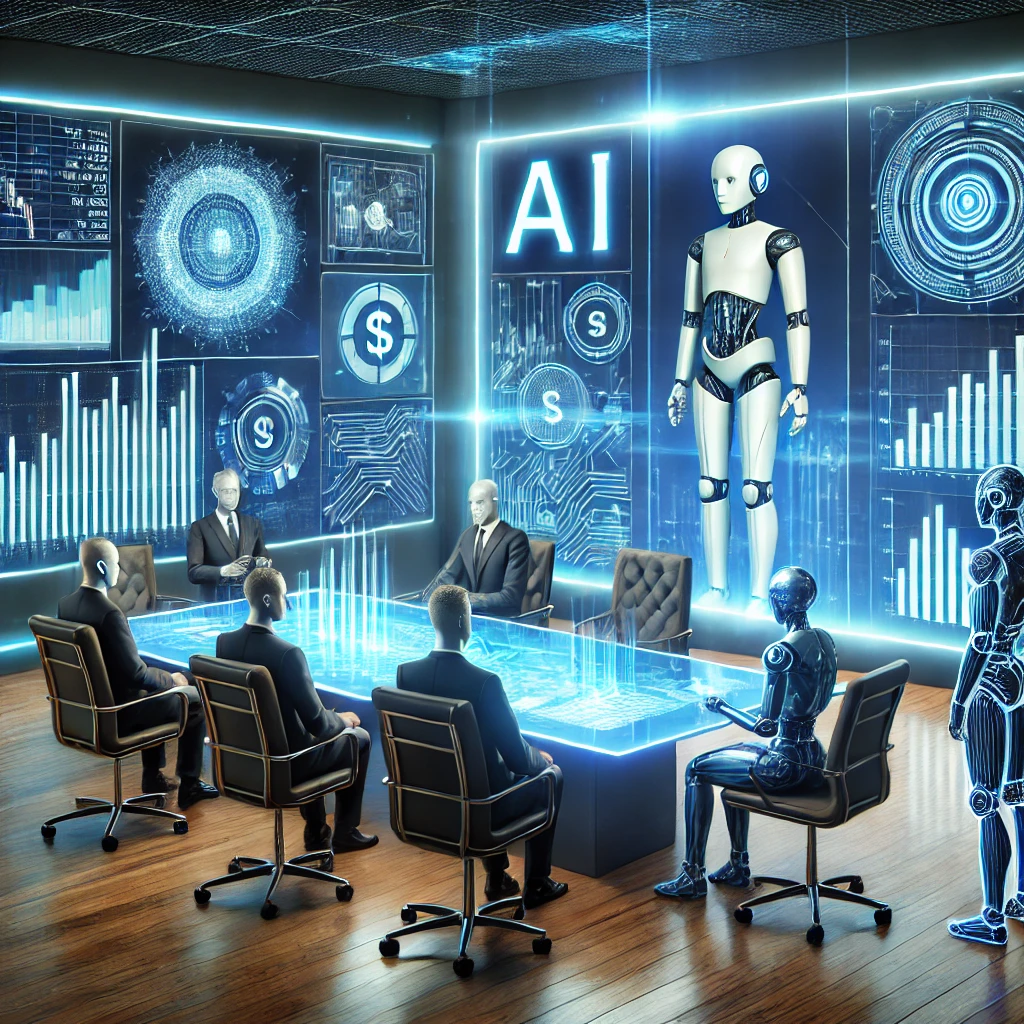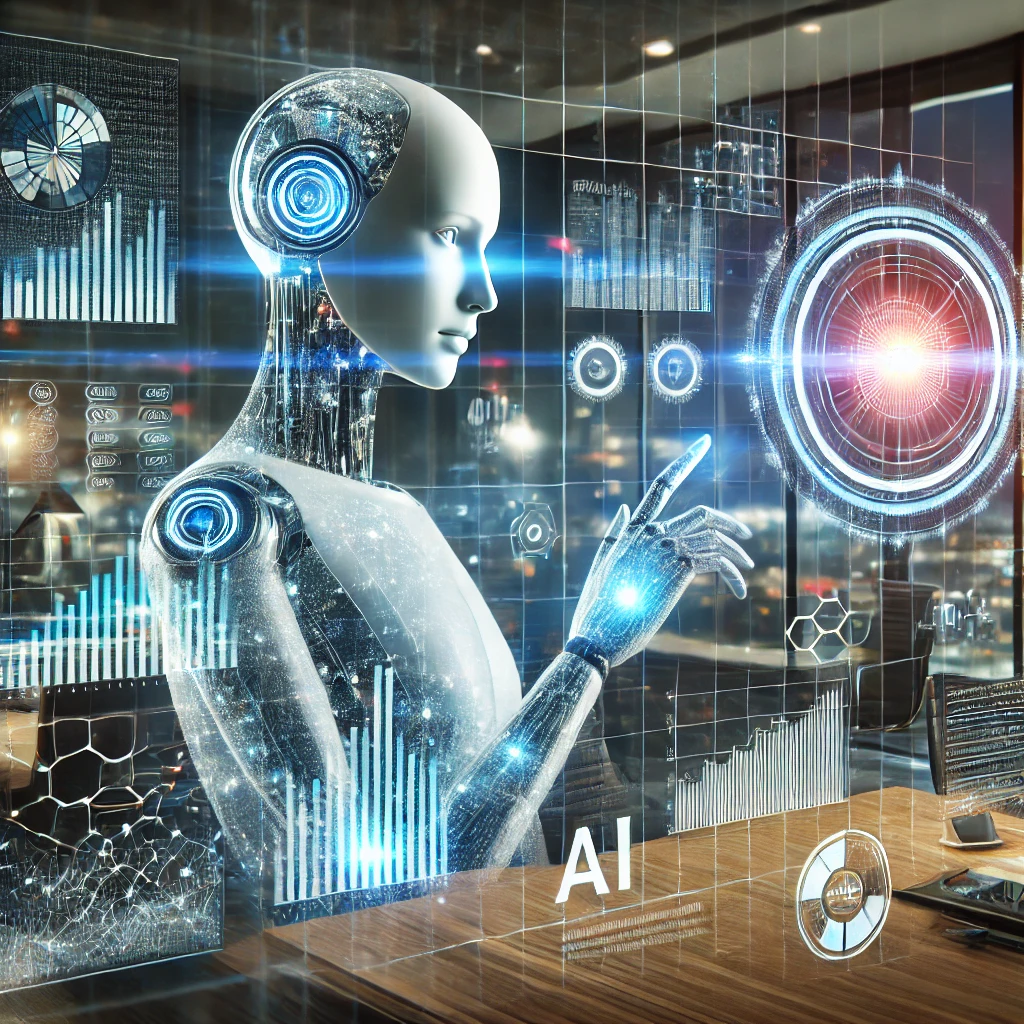AI-Driven Business Models: Shaping the Future of Success
AI driven business models
Introduction
Artificial Intelligence (AI) is changing the way businesses operate. From automating tasks to offering personalized customer experiences, AI-driven business models are paving the way for smarter, faster, and more efficient ways of working. But what exactly does it mean to have an AI-driven business model, and why is it so important? Let’s break it down in simple terms.
What Is an AI-Driven Business Model?
An AI-driven business model uses artificial intelligence as the backbone of its operations. Instead of relying solely on human effort, businesses integrate AI technologies to:
Automate repetitive tasks.
Analyze large amounts of data in seconds.
Predict future trends based on customer behavior.
Whether it’s Netflix recommending shows or Amazon predicting what you’ll buy next, AI makes businesses smarter and more customer-focused.

Why Businesses Are Turning to AI?
Here’s why more companies are adopting AI-driven strategies:
1. Faster Decisions
AI analyzes data at lightning speed. This helps businesses make quick, accurate decisions. For instance, financial companies use AI to predict market trends and act on them instantly.
2. Better Customer Experiences
AI learns from customer behavior to deliver personalized services. Think of Spotify curating playlists just for you or e-commerce sites suggesting products you’ll love.
3. Cost Efficiency
By automating tasks like customer support or data analysis, businesses save time and money while boosting productivity.
4. Innovation Opportunities
Real-World Examples of AI-Driven Businesses
1. E-commerce and Retail
Amazon: Predicts what products customers will buy and adjusts inventory accordingly
.Zara: Uses AI to predict fashion trends and manage stock.
2. Healthcare
AI systems like IBM Watson help doctors diagnose diseases faster and with greater accuracy.
Wearable devices powered by AI monitor patient health in real-time.
3. Finance
AI-powered algorithms detect fraudulent transactions in seconds.
Robo-advisors, like those offered by Wealthfront, manage investments based on AI predictions.
4. Marketing
Tools like HubSpot use AI to analyze customer data and create highly targeted ad campaigns.

How to Build an AI-Driven Business Model
Creating an AI-powered business doesn’t have to be complex. Here are some steps to get started:
1. Define Your Goals
Ask yourself: How can AI help improve your business? Whether it’s better customer service, reducing costs, or predicting trends, start with a clear goal.
2. Collect and Use Data
AI thrives on data. The more quality data you have, the better decisions your AI system can make.
3. Start Small
Begin with simple AI tools like chatbots or automated email marketing, and scale up as you see results.
4. Work with Experts
If you’re new to AI, hire experts or collaborate with tech companies to implement AI solutions.
Benefits of AI-Driven Business Models
AI is not just a fancy buzzword—it brings real, tangible benefits:
Saves Time: Automates routine tasks like scheduling and customer queries.
Boosts Revenue: Optimizes pricing, predicts customer needs, and increases sales.
Reduces Errors: AI systems are far less prone to mistakes than humans.
Increases Efficiency: Makes complex operations faster and more streamlined.
The Challenges to Consider
While AI is powerful, it comes with challenges
High Costs: Setting up AI systems can be expensive initially.
Privacy Concerns: Businesses must ensure customer data is protected.
Training Required: Teams may need to learn new skills to work with AI.
Despite these challenges, the long-term benefits far outweigh the hurdles.

The Future of AI-Driven Businesses
The role of AI in business is only going to grow. Here are some trends to watch:
Smarter Products: AI will power devices like self-driving cars and advanced healthcare gadgets.
AI for Small Businesses: Affordable AI tools will make it accessible to startups and small businesses.
AI and Sustainability: Companies will use AI to minimize waste and promote eco-friendly practices.
Conclusion
AI-driven business models are the future. They make businesses smarter, faster, and more customer-focused. Whether it’s automating tasks, delivering personalized experiences, or unlocking new innovations, AI is transforming industries across the board.
If you want to stay ahead in today’s competitive market, embracing AI is no longer an option—it’s a necessity. Start small, experiment with AI tools, and watch your business thrive in the digital age.
